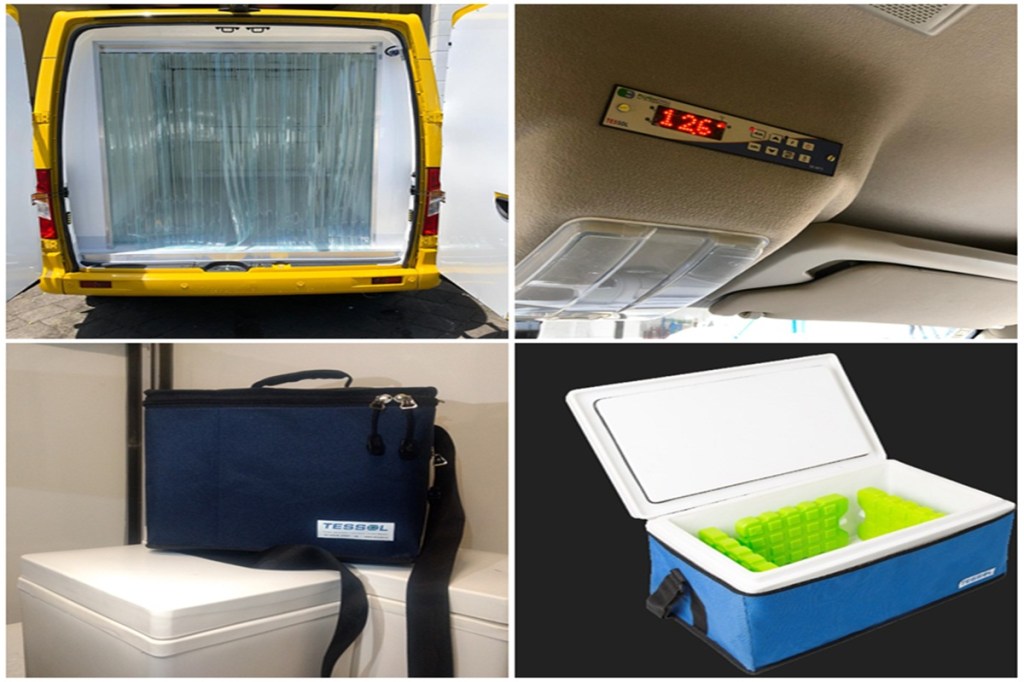By Niranjana Neelakantan
Lack of proper cold chain infrastructure has been many-a brand’s greatest nightmare always. As a home delivery customer, melted butter, melting ice cream and refrozen meat are also your worst nightmares. Cold chain infrastructure problems are not new to any of us. With the increased focus on vaccine distribution and greater reliance on home delivery, this issue has been brought to the fore-front now.
Cold chain infrastructure problems arise mostly in tertiary and last mile distribution in India. Temperature controlled distribution of the last mile segment is not supported by conventional units as they cannot work on capacities smaller than a 1-ton vehicle. The currently available active cooling solutions for cold chain distribution require a continuous power source from a vehicle and runs on diesel, making them very expensive. Given the small package sizes, the large costs incurred in transportation makes conventional solutions unviable for most stakeholders forcing them to break the cold chain or use potentially hazardous substances like dry-ice* especially towards the consumer / retail end of the chain. This severely impacts product quality and creates opportunities for spoiling customer experience.




However, new age solutions based on Phase Change Chemicals are being rapidly developed that allow brands and distributors to offer end to end transportation of packages from source to customer without breaking the cold chain up. Proprietary PCM (Phase Change Material) based heat exchangers and chargers store thermal energy (therefore the term “Thermal battery”) and release it as and when required during the transport period. Therefore, these solutions need no power source during transport and are independent of the type of vehicle used. These high density PCMs freeze (change from liquid to solid state) to store energy and melt (solid to liquid) to release energy as required during the transport period. The heat exchanger design and energy management system modulate the rate of charge and discharge. The heat exchangers mounted on a typical 1 ton + (8.5ft+) vehicle require a 5-6 hour charge post which can run for 10-12 hours with multiple openings / drops. They need no power source during transport. The current Govt impetus on electric vehicles is also giving the much needed boost to these sustainable technologies. With Govt’s and private conglomerates coming forward and offering to install EV charge points, adoption of such battery enabled technologies will become easier.
‘Thermal Battery’ technology based solutions can provide desired temperature control (from -25oC to +25oC) across enclosures ranging from a 5 liter bag to 20 feet (10 ton) truck. This not only offers a huge flexibility on size and transport vehicle, increasing access to fragmented general trade, but also reduces the operational cost significantly. A smaller vehicle going to a general trade retail will mean lower vehicle capex and higher fuel efficiency in addition to saving on fuel for cooling. The thermal battery technology is also an effective replacement to currently existing diesel technologies. All the savings on fossil fuel while impacting the bottom lines, also have a significant environmental impact. A single PCM based vehicle enables fuel savings of up to 1000 litres/ annum which means savings of 2.6 MT CO2 emissions per vehicle.
A large part of the cold chain transport is also seasonal in nature and requires multi-temperature fleets even on smaller vehicle platforms. Conventional units which are fixed on trucks, need dedicated fleets making cold chain transportation unreliable or impossible for most products and package sizes in India. This significantly impacts food quality and increases wastage. PCM based technologies can also be used to design customised trucks and containers of varying capacities thereby offering brands multi-use flexibility.
Temperature monitoring is also very crucial to ensure maintenance of product quality. Most times, the only data which is provided to the end user is the temperature details at which the consignment was shipped and it can get very hard to determine the temperatures maintained during transit. Real time temperature monitoring is therefore a much needed feature for cold chain transport. Latest developments in this technology offer temperature and humidity data as well. The devices are small, have a 6 month to two year battery life, require no hub or sim recharge cost and provide an automatic setup with any smartphone. These systems are very simple to install and include setting up the device on a mobile app, keeping the device on the container and fixing the QR code and thirdly, by monitoring the application.
That the cold chain infrastructure problem is being so actively discussed across multiple forums is giving the solutions a great impetus. This increased awareness is helping more manufacturers and technology developers come up with innovative solutions. It is also helping showcase the various options to a large set of customers making acceptance and adoption much easier. With the stage set, we should be optimistic that India will soon be able to address and solve its cold chain infrastructure problem effectively.
(The author is Co-Founder & COO of TESSOL. Views expressed are personal and do not reflect the official position or policy of the Financial Express Online.)






















